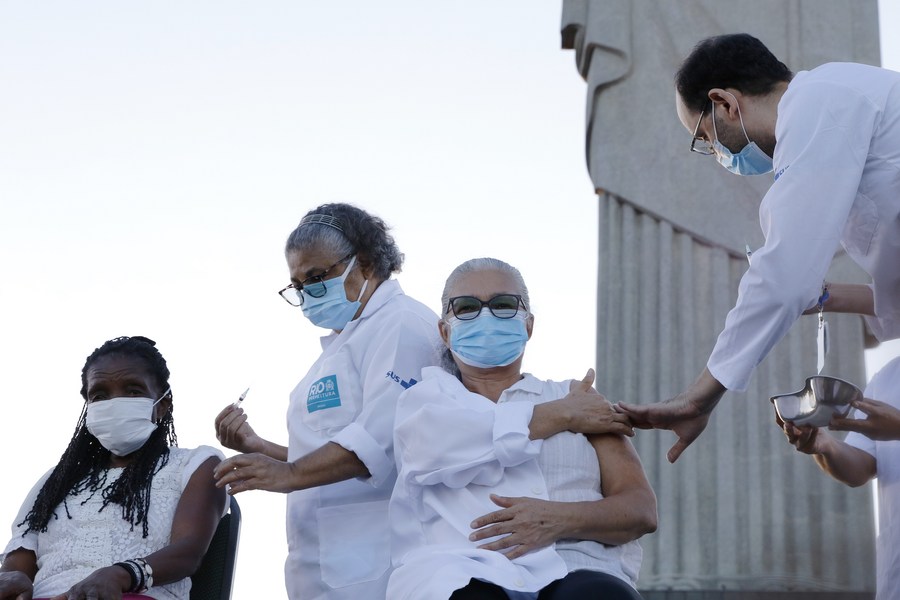Upholding Multilateralism: BRICS on Fighting COVID-19

Despite COVID-19 pandemic limitations, intense BRICS dialogue has continued on topical global issues.
Editor’s Note: The Covid-19 pandemic has brought difficulties to multilateral cooperation. As the cooperation mechanism of emerging counties, can the BRICS withstand the pandemic and continue its role in global governance? Vladimir Petrovsky, PhD, Political Science, Researcher, Institute of Far Eastern Studies, Russian Academy of Science and Full member of the Russian Academy of Military Sciences, shared his insights into these questions at the Seminar on Governance 2021 held in Beijing in early November. The excerpts of his speech are as follows.
Today, the BRICS are faced with the task of adapting to a changing world and continuing to move towards their main goal — strengthening multilateral approaches in international relations and building a more equitable economic order.
Despite the fact almost two years passed in the shadow of the coronavirus, and all offline activities were, in fact, suspended, Russia and India managed to successfully carry out all events in the BRICS format within the framework of its chairmanship.
An analysis of the main documents adopted at the summits suggests that the key topics for discussion on the sidelines of the summit were measures to counter the coronavirus pandemic, not only in the sanitary and epidemiological sense, but also in a broader economic sense.
The BRICS leaders recognized the role of extensive immunization against COVID-19 in preventing, containing and stopping transmission in order to bring the pandemic to an end, once safe, accessible and affordable vaccines are available. BRICS acknowledge initiatives by the WHO, governments, non-profit organizations, research institutes and the pharmaceutical industry to expedite the research, development and production of the COVID-19 vaccine and therapeutics and support cooperative approaches in this regard.

Despite COVID-19 pandemic limitations, intense BRICS dialogue has continued on topical global issues: they reaffirmed their commitment to multilateralism and the principles of mutual respect, sovereign equality, democracy, inclusiveness, and strengthened collaboration. They pledged to continue working towards strengthening and reforming international governance so that it is more inclusive and representative. They acknowledged that current international challenges should be addressed by strengthened international cooperation through reinvigorated and reformed multilateral system, including the UN, the WTO, the WHO, the IMF and other international organizations.
BRICS welcome the progress towards the early establishment of the BRICS Vaccine Research and Development Center in a virtual format. We support the progress in the creation of the BRICS Comprehensive Early Warning System to prevent the risks of mass infectious diseases.
The BRICS leaders also highlighted the importance of international efforts to achieve mutual recognition and testing of national COVID-19 vaccination documents, especially for international travel purposes.
Widespread immunization against COVID-19 is a global public good, we deplore the glaring inequalities in access to vaccines, diagnostics and therapies, especially for the world’s poorest and most vulnerable populations. In this regard, we note, in particular, the ongoing discussions in the WTO on the issue of waiving intellectual property rights for vaccines against COVID-19.
The leaders of BRICS stressed that the COVID-19 pandemic has continued to cause damage around the world for almost two years and called for increased international preparedness and cooperation to tackle the pandemic and other current and future health challenges by mobilizing political support and the necessary financial resources.
 Facebook
Facebook
 Twitter
Twitter
 Linkedin
Linkedin
 Google +
Google +










